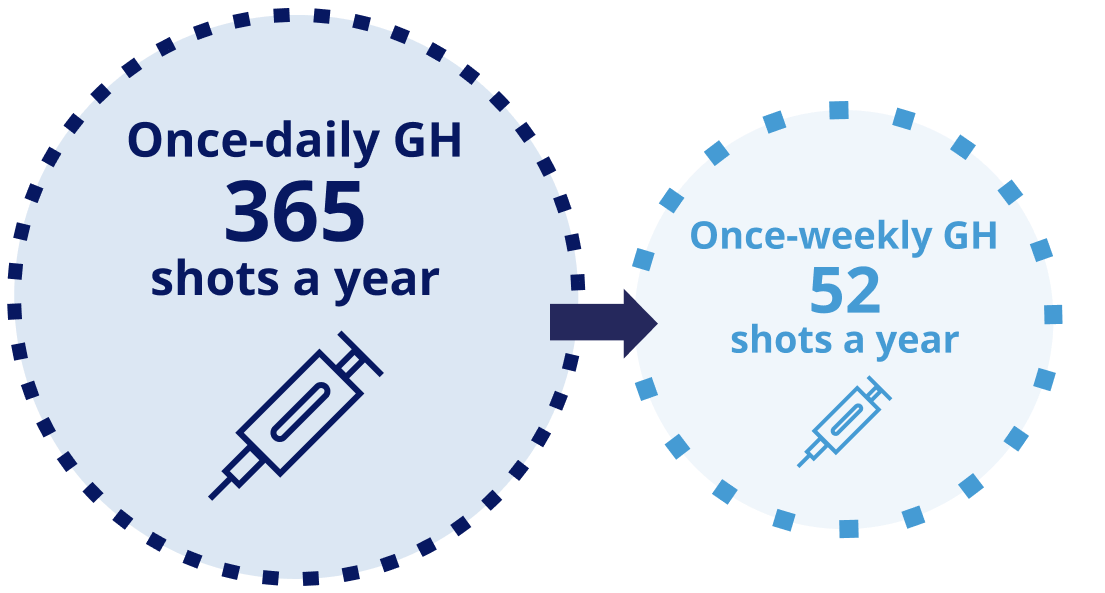DAILY GROWTH
HORMONE INJECTIONS
CAN BE A CHALLENGE
What if they happened once a week instead?
Actor portrayal
Busy schedules. Split households. Challenges with needles.
If your family struggles with daily GH injections, you’re not alone. In fact, repeated injections are one of the reasons some children don’t stick to their treatment schedule.
But here’s good news: once-weekly injections
might be a better fit for your family.
Missing daily injections can make a difference
Children have a limited time to grow. Your child’s GH treatment is important, and skipped doses add up.
Missing
1 DAY
per week of daily GH treatment
results in missing up to
52 days
of treatments in a year
which equates to missing
~1 year
of doses over a 7-year treatment period
Ready to consider a
once-weekly treatment option?
If daily injections are tough on your family, it could be time to talk to your doctor about switching to a once-weekly GH treatment. These once-a-week medications don’t need to be taken every day—just 52 injections for the whole year.

A panel of pediatric endocrinology experts from around the world provided recommendations on the use of long-acting, once-weekly growth hormone therapy.
They agreed:
They agreed:
Fewer injections may help children stick with their treatment plan
Parents and caregivers may prefer fewer injections—once-weekly over daily GH
Most kids being treated with GH can be considered for a weekly administration regimen. Talk to your doctor about what’s right for your family.
Fewer shots?
52 per year vs 365
Fewer shots may help your child stick with their dosing schedule to get the full benefits of their GH treatment.

Once-weekly GH may offer children and families flexibility and a treatment option that fits their lifestyle.
Talk to your doctor today!
Actor portrayal
Get insurance support and find savings
Find out more about support programs as you start your GH journey by contacting Novocare® directly at 1-888-668-6444 or clicking below.
Hear from GH families
Kids and parents are speaking out about why they made treatment changes—and why it matters.
